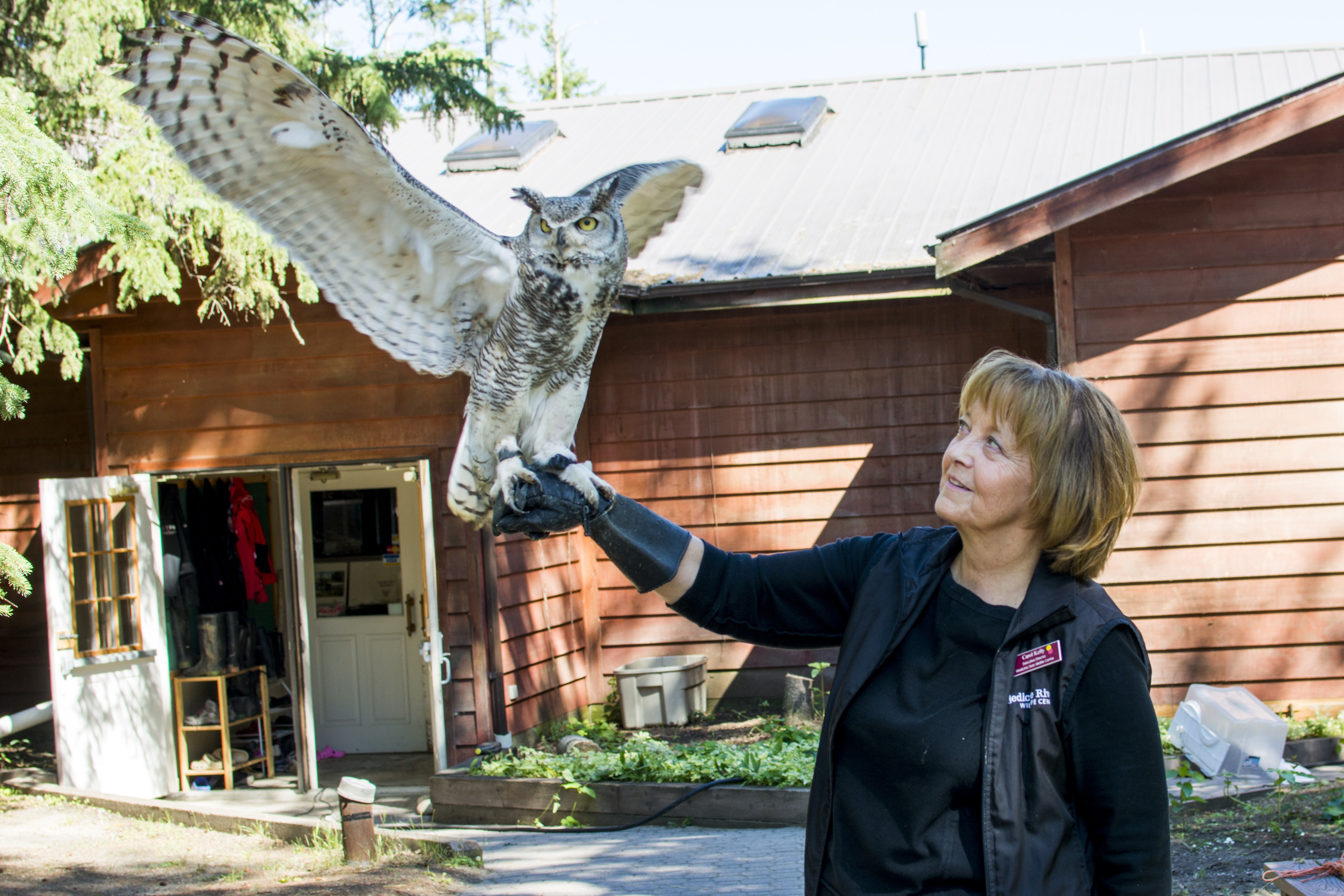Medicine River Wildlife Centre is in dire need of community support as they are facing closure if a new hospital facility is not built.
MRWC was built 31 years ago following a grant of $100,000 from the federal government. Founder and Executive Director Carol Kelly, along with her family built the facility to address the needs of the many animals who were injured and orphaned in Central Alberta and have since saved the lives of over 10,000 animals.
However after years of wear and tear on the original building, which hosts the hospital, interpretive educational centre and offices for the staff, Kelly has found the ceilings of the building caving in, yearly flooding from heavy rains, with the building’s foundation no longer meeting government codes.
This spring the building’s heating system also gave out.
“After 31 years and numerous near closures in the past, I found myself wondering if this wasn’t the final straw that would lead to the closure of the centre,” explained Kelly. “We won’t make it through the Alberta winter without heat.”
Despite attempts to renovate the hospital, which is at capacity, contractors told Kelly time and time again the building was beyond repair. This left the centre with a $400,000 bill on their table to build a new hospital.
The team took to the Internet in an attempt to raise the funds via an IndieGoGo campaign. The online site allows people to donate to the cause. However after a month of the campaign it became clear they were nowhere near their goal, with $20,845 having been raised by last week.
She has since taken to the community in hopes they will come to the rescue of an organization which in turn rescues over 1,800 animals a year.
Following the forced gutting of their hospital area at the Centre, Kelly was forced to relocate the hospital into the interpretive educational centre, meaning they were no longer able to offer their onsite education programs.
“I’ve been turning away bus tours, school tours, university classes, individuals – we had to put a sign up saying we are closed because every day people were coming in but we kept having to turn them away.
“We aren’t just taking in a few birds and spoon feeding them until we can let them go again – what we do here is so much more than that.”
Not only does the centre rescue and care for animals – their practices for doing so have become internationally renowned best practices for similar organizations around the world. They also participate in a number of research projects including studies of the effects of bitumen on animals caught in oil spills, as well as research into the release of animals back into the wild after being treated.
They also provide practicum and internship opportunities to both local and international students, as well as travel to schools and communities across Central Alberta to educate individuals about wildlife.
“I think that what happens is because we answer those phone calls for all of the people of Central Alberta and because we are always there when they need us, they assume if we are responding to our calls that we have everything we need,” she said.
“Operationally we are doing fine, we have the money we need to get by every year – we have all kinds of equipment and we have vehicles to get from the centre to sites.
“But I hope people are starting to realize that we really do need them and we need their support to do the things we do here – whether it be the rescuing itself, the recovery, the education initiatives or the research projects.”
With no other wildlife rescue facilities in Central Alberta, Kelly fears what will happen if they don’t raise the funds for their hospital.
“Thirty-one years ago, we didn’t exist here – so when we ask people what they did before we were here, most of the time the answer is they would euthanize them because there was no other option, but now there is,” she explained. “Every day I hear people on the phones saying thank you, thank you, thank you – what would we do without you,” she said.
“So I think people want us to be here and they appreciate the service we provide to the community, but they likely haven’t realized how dire the situation was and how much we desperately need this new building.”
With the IndieGoGo campaign coming to a close, they urge individuals to support the building of their new hospital so they may continue to save the lives of what Kelly expects to surpass 2,000 animals this year.
If you wish to support the centre, contact Kelly by phoning 403-728-3467 or email the centre at info@mrwc.ca.
“My biggest concern is that if we are forced to close our doors because of the lack of hospital, that people won’t be willing to drive injured animals to Edmonton or Calgary and if they can’t bring them to us then the animal will either die or they will take them home and care for these animals themselves both illegally and improperly.
“We aren’t sitting on Gaetz Avenue in front of people everyday – due to our location (near Spruce View roughly 60 km from Red Deer) we are removed from the public’s eyesight, and they often don’t think of us as someone who needs their help but we really genuinely do.”
jswan@reddeerexpress.com



